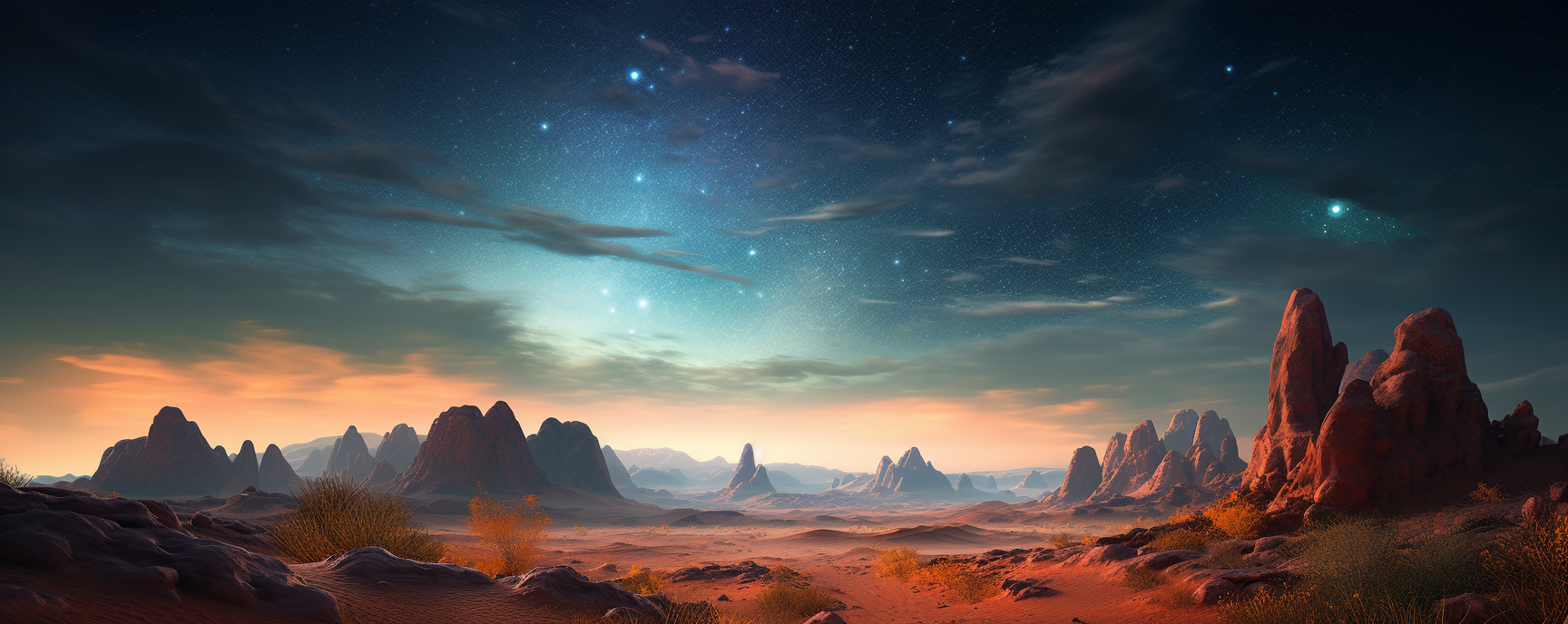Introduction
Claiming to have been crafted from the sands themselves, the Rano people have adapted remarkably well to the harshness of their desert home. The Rano are a proud and hardy people who, unlike their
Cadian cousins, have embraced the power of the desert sun. The Rano tend to be a sedentary group, preferring to take advantage of localized resources to establish small agricultural communities where water is most accessible, rather than cross the sands in search of necessities.
Physical Description
Rano are the largest race of peoples living in the
Jodan Desert, typically reaching heights between 5'10" and 6'3", although some may grow even larger. It is thought that these larger sizes allow for better heat exchange efficiency, allowing Rano to keep cooler in the midday sun.
Owing to their mastery of agriculture, and therefore historic surplus of food, Rano tend to have much higher metabolisms than other races. Although this means they typically require more energy than others to simply exist, it also means that they develop muscle mass exceptionally well. Most Rano are broad and well-muscled, and it is rare to find one that can be considered overweight.
Having evolved under a brutal sun, Rano tend to have red-brown or black pigmented skin. Most are of a deeply tan or coffee brown color, and have even darker pigmented freckling around the areas of skin which see the most sun-- the hands, feet, and face, particularly around the nose. Rano eyes are less light-sensitive than those found in other races, and are almost always dark brown or even black. Their hair is tightly curled, does not grow below the ear, and is usually black or very dark brown.
Despite the hot sands, Rano do not typically wear shoes. Their feet tend to be calloused and are adapted to the heat of the sands. Bare feet allow Rano to sense minute vibrations in the nearby earth, a trait developed in response to conflict with predatory sub-sand creatures. To a Rano, wearing shoes is akin to walking around blind. It is not uncommon for Rano criminals to endure 'foot binding,' or the forced wearing of shoes, as a punishment.
Rano feet are more flexible than others, and have two standard positions. The 'land stance' keeps the entire foot flat on the ground and allows for better tremorsense, but may become painful on hot sand. To better avoid this, a Rano may lift into 'heat stance' and walk only on their toes. The skeletal structure of the foot allows for indefinite comfortable walking in either stance.
Attitudes and Philosophies
As is common in Joda, Rano respect the traditions of honesty, hospitality, and kinship. However, because Rano are much more likely to settle in one place than the Cadia, they tend to invest more in community loyalty and honor. In these communities, the viscous pride of the Rano extends to the entire collective of individuals.
To a Rano, there is no difference between one's blood family and their community. Typically, Rano work hard to improve their community's standing. This often leads to generosity and hospitality toward outsiders, as it is dishonorable to turn down a person in need. If a stranger arrives on the doorstep of a Rano community, they will undoubtedly be offered a meal and a place to stay for the night. To deny such a guest reflects poorly on the community, and invites ostracization from others.
Any neighbor's transgression diminishes the honor of every person in the village. Thus, many Rano end up feeling protective of not just their own honor, but the honor of those they consider part of their community.
Because of the Rano's extended ideals on family and community, many tend to live non-monogamous lives. To most Rano, sex is a means of strengthening personal and community bonds, and sexual or romantic interest in one individual does not preclude interest in another. For smaller Rano villages, fatherhood is commonly unknown and child rearing is communal.
Like others in Joda, Rano may worship any of the conceptual Jodan gods. However, they usually favor those that relate to sedentary, agricultural, and communal living. These might include Rain, Sun, Growth, Defense, Empathy, Honor, and more.
Race Relations
A Rano's strong beliefs in honor and hospitality tend to make them favorable hosts, trade partners, and friends. Anyone of any race may be adopted into a Rano community and can therefore be thought of as direct family.
Both the Cadia and
Etophin generally embrace Ranon ways if they choose to settle in Ranon communities. However, settlement in Ranon villages is generally a rare occurrence for the nomadic, nocturnal Cadian people. Instead, Cadian troupes typically pass through Ranon villages while on route, bringing exotic trade goods in exchange for rest, complex crafted supplies, and satisfying meals. The Rano depend on the Cadian nomads to spread tales of their honor to other Ranon villages.
The biggest exception to this division is the capitol city of
Ak'arai, where both Ranon and Cadian cultures have integrated into each other.
Names
Ranon names consist of two parts-- a community name, and a personal name. Holding more importance in Ranon tradition, community names are placed before personal names, although full names are shortened to personal names when used between people of the same community. Community names tend to be two-word descriptions of the region. Personal names tend to be short and powerful regardless of sex.
Example Community Names: Snakewater, Rockbloom, Owlfort, Wetrock, Mudflood, Galeshield
Example Personal Names: Weld, Vask, Rone, Pak, Yaz, Jisk
